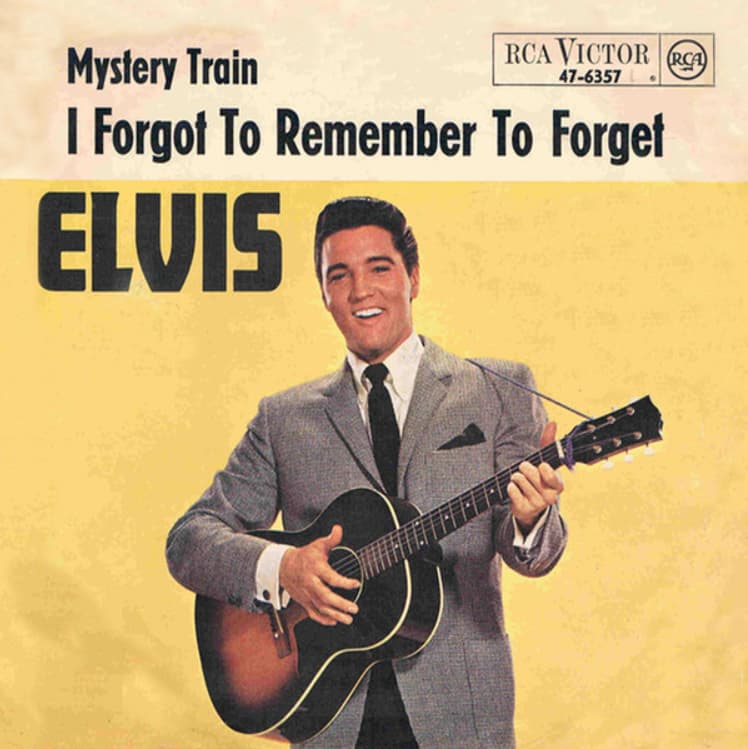
An emotional journey of heartbreak and a lesson in letting go
The King’s Heartache: A Timeless Tale of Love Lost
In the annals of rock and roll history, few figures loom as large and as lovingly as Elvis Presley. His voice, a potent cocktail of raw emotion and honeyed sweetness, had a singular power to articulate the universal language of the heart. But before he was the globally adored “King,” Elvis was a young man in Memphis, still finding his footing and his voice. It was during this formative period, a time of artistic discovery and burgeoning fame, that he recorded a song that would not only define the early sound of rockabilly but also serve as a poignant prologue to his legendary career: “I Forgot to Remember to Forget.”
Released in August 1955, this deceptively simple tune was more than just another record; it was a watershed moment. Paired with the B-side track “Mystery Train,” the single was a commercial and critical triumph. While both songs showcased the unique blend of country, blues, and gospel that defined his early work at Sun Records, it was the A-side that truly resonated. “I Forgot to Remember to Forget” became Elvis’s first taste of chart-topping success, reaching the pinnacle of the Billboard country music charts in early 1956. This wasn’t just a hit; it was a declaration. It marked the moment a regional sensation began his inexorable climb to superstardom, a pivotal point just before his move to RCA Victor.
The story behind the song is as emotionally resonant as the music itself. Written by Stan Kesler and Charlie Feathers, the lyrics captured a sentiment that was deeply personal to many, especially to a young man like Elvis who was no stranger to heartbreak. The song’s title is an eloquent paradox, a brilliant piece of lyrical poetry that encapsulates the futility of trying to erase a powerful memory. It’s a sentiment that speaks to anyone who has ever been haunted by a past love, a ghost that refuses to be laid to rest. The narrator is caught in a loop of emotional despair; he wants to forget but finds himself unable to, the very act of trying only serving to remind him of what he has lost. This emotional turmoil, this cycle of longing and pain, is a feeling that knows no age, no generation.
Elvis’s rendition is a masterclass in understated delivery. He wasn’t yelling or gyrating; he was simply feeling. His vocals are tinged with a delicate sorrow, a weary resignation that makes the listener feel the weight of his grief. The arrangement, with its mournful steel guitar and steady rhythm, creates a sense of wide-open, lonely spaces, an aural landscape where the heart is free to wander and ache. It’s a sound that evokes dusty roads and late-night drives, the kind of quiet moments when the past comes rushing back with an unwelcome clarity. The song is a poignant reminder of the innocence and vulnerability that existed beneath the flashy suits and charismatic stage presence that would later define him. It is a time capsule, preserving a moment when a young man with a guitar was just trying to make sense of a broken heart, a moment that would eventually be shared with the entire world.